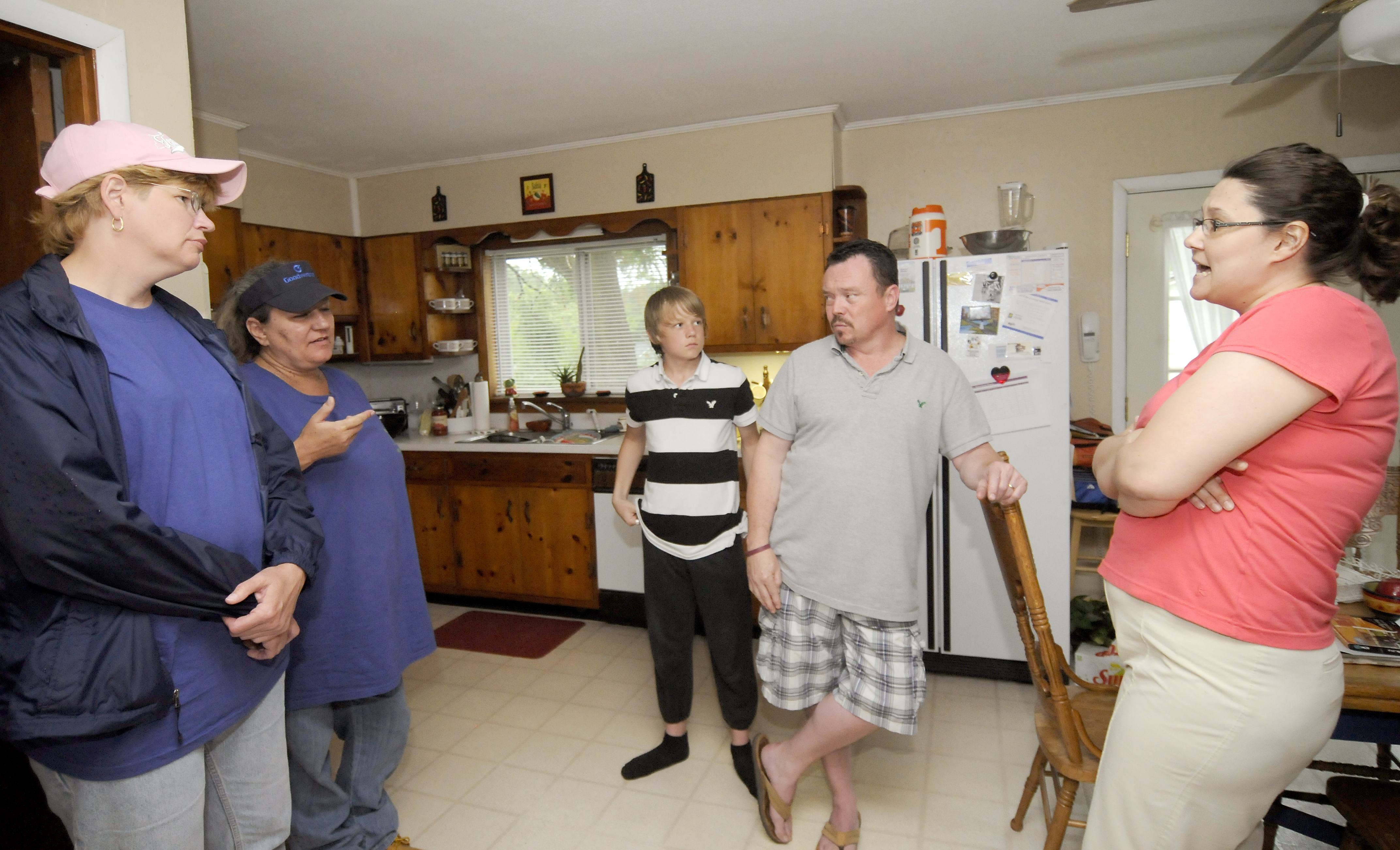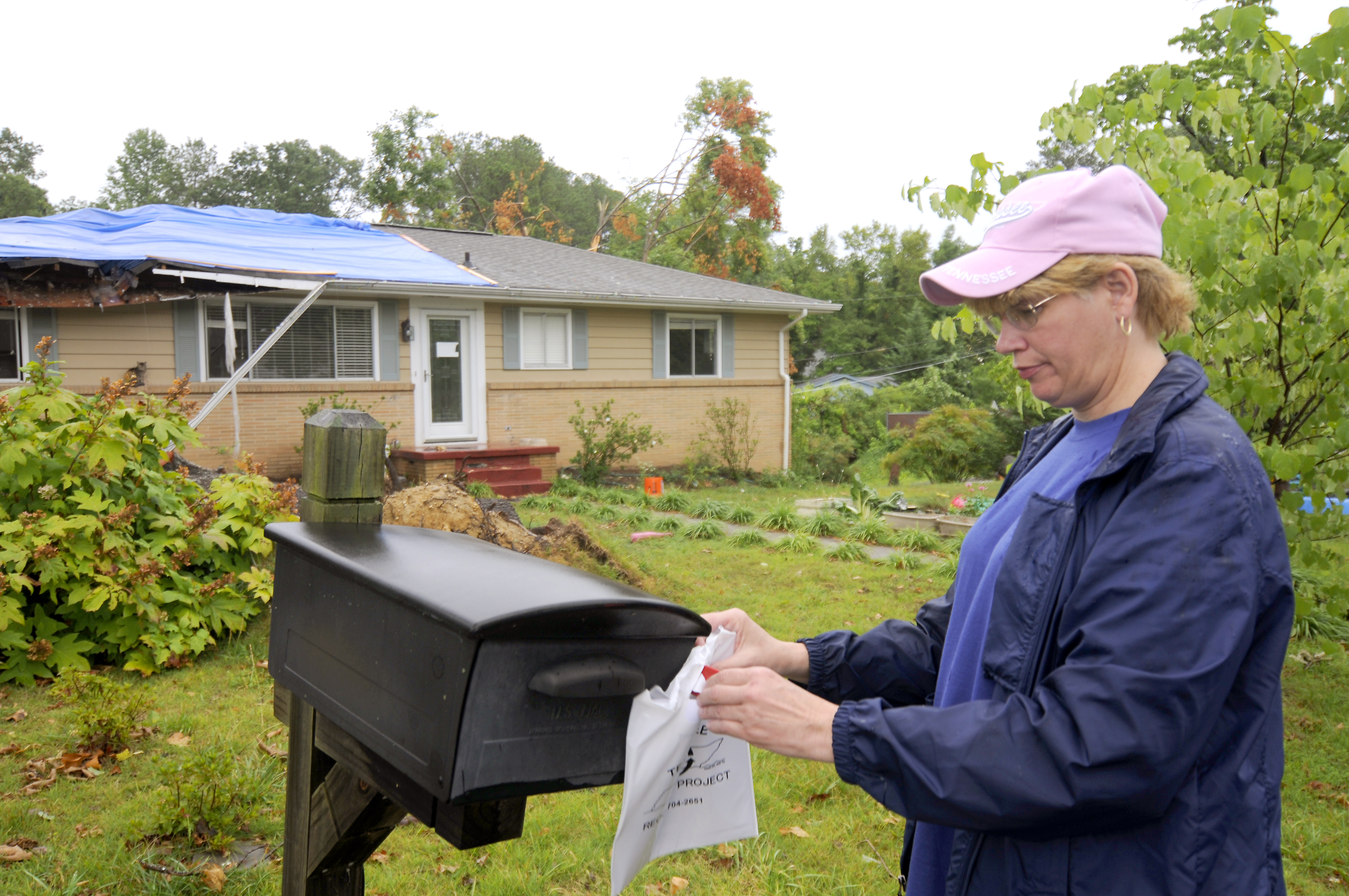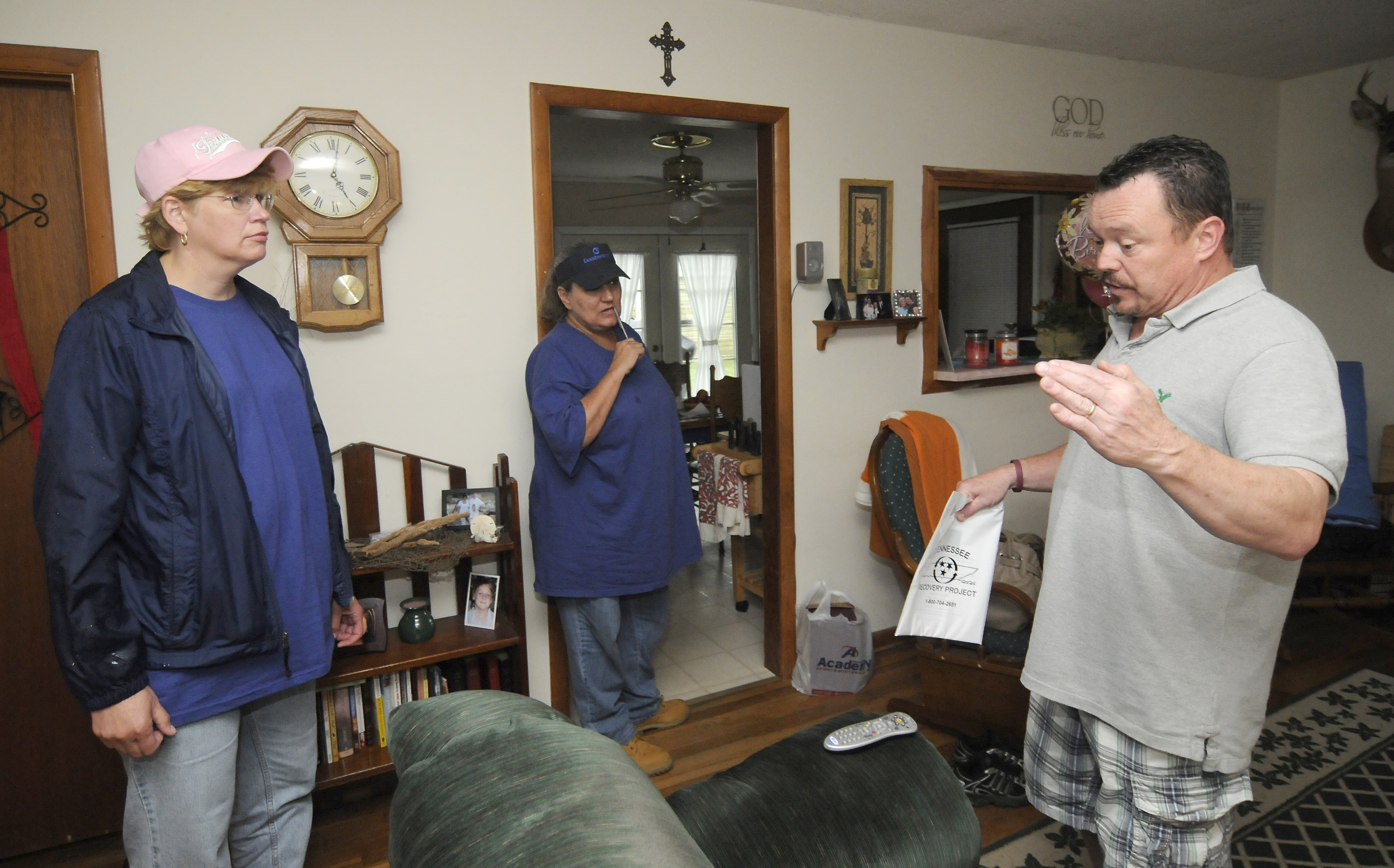Crisis counseling a priority in tornado aftermath
Wednesday, June 22, 2011
Disaster coping
Six months after the floodwaters in Nashville and Middle Tennessee dried up last year, authorities tallied eight survivors who had committed suicide, 22 others who had attempted it and two more who had tried to kill someone else. All the violence was traced to the stress of the flooding and recovery from it, authorities concluded.Source: Tennessee Recovery Project
FOR HELP
In Southeast Tennessee, call1-877-567-6051 or 1-800-704-2651In Northeast Alabama, call1-800-639-7326In Northwest Georgia, call706-861-3387 or 706-638-5591,or 706-657-7501
Carol Myers and Deb Godfrey are a traveling therapy team.
Every Saturday and Sunday for the past month they have driven through tornado-ravaged neighborhoods, knocking on doors. They're looking for nerves that may be as frayed as the ripped shingles under the blue tarps that mark storm paths across Southeast Tennessee.
"Most people tell us they're fine," Myers said. "And they may be. Now. But they may have anxieties that they don't even realize they have yet. We just want them to know there is something and someone they can call if and when they need help."
The efforts to help tornado survivors cope with the emotional wreckage and wrenching storm aftermaths are free, funded by two federal agencies: the Federal Emergency Management Agency and the Substance Abuse and Mental Health Services Administration.
Georgia and Alabama have similar grants for disaster crisis counseling.
The aim is to help survivors understand their reactions, improve their coping strategies, review their options and connect with other people and agencies that may be able to assist them.
Armed with dog treats, insect repellent and a collective strong sense of humor, Myers and Godfrey strike up conversations with strangers, trying to learn their hearts.
"This was my hand," said 12-year-old Alex Griffith, holding his arm out and mimicking the spasmodic quiver of nervousness he had after tornadoes ripped through the region on April 27, taking portions off the roof of his Hixson home and several nearby trees.
He was with his grandparents that day while his parents worked. When the tornado threat chased Alex, in his pajamas and house shoes, from his grandfather's car in a Walmart parking lot and into the store's center for shelter, he was too hyped on adrenaline to think about how he would feel later.
"I felt the same way that day. We all did," Myers told Alex and his father, Rick Griffith, as they stood Saturday in the family's kitchen. "Sometimes the actual effects of something like this last a long time. If you need anything, you call the numbers in the packet we gave you."
Alex's mom, Donna Griffith, thanked the two visitors, and said the outreach of emotional support is "much needed" in the damaged neighborhoods.
Pulling it together
The need for crisis counseling and emotional help was demonstrated last year in the wake of catastrophic flooding in Nashville and Middle Tennessee.
Six months after the floodwaters dried up, authorities tallied up eight survivors who had committed suicide, 22 others who attempted it and two more who tried to kill someone else. All the violence was traced to the stress of the flooding, said Deloris Kinnaird, the Tennessee Recovery Project Coordinator for Volunteer Behavioral Health.
After the April tornadoes, Tennessee and Georgia each received initial grants of about $300,000 and $200,000, respectively, for immediate outreach to serve them through June. Both states are seeking additional money for follow-up counseling help for at least nine months.
Alabama, with many more homes and families affected by the storms, received about $2 million and hopes to get more.
In Southeast Tennessee, Godfrey and Myers are among 14 counselors who make up seven part-time teams working in six counties - Hamilton, Bradley, McMinn, Monroe, Rhea and Bledsoe.
All the crisis counselors work for Volunteer Behavioral Health, which partners with the Tennessee Department of Mental Health - the administrator of the federal crisis counseling grants for the Volunteer State.
"We go out in teams on the weekend when people are in their yards and talk to them and offer help," Kinnaird said. "Often what we see and what they tell us are not the same thing. What we see a lot is exhaustion. Or sometimes something triggers them to relive their experience."
Kinnaird said an ear and a helpful suggestion are often an ideal treatment.
In Bledsoe County, officials dealt with a family that had acres of blown-down trees on their property, waiting to become a wildfire. They were hooked up with Bowater, a pulp-paper company, which agreed to haul away the trees for use in its paper mill.
In Spring City, Myers and Godfrey took a grant request form Saturday from a modular homes trade association to a couple who had lost an uninsured mobile home.
Near the New Harmony community, the two women split open four bags of a friend's donated dog food and several cans of cat food at two vacant homesites where dogs and a cat were left to fend for themselves.
Along the way, the pair shook hands, heard some stories and put packets on mailboxes. About 35 to 40 percent of people they talk with say they're fine, but they may call back later asking for some help, Godfrey said.
Especially as time and the reality of recovery set in.
"When it's three to six months later and they still don't have their lives back as they were, they may become disillusioned," she said. "Some people just don't know how to cope with it, but we're here to help."
Contact Pam Sohn at psohn@timesfreepress.com or 423-757-6346.


